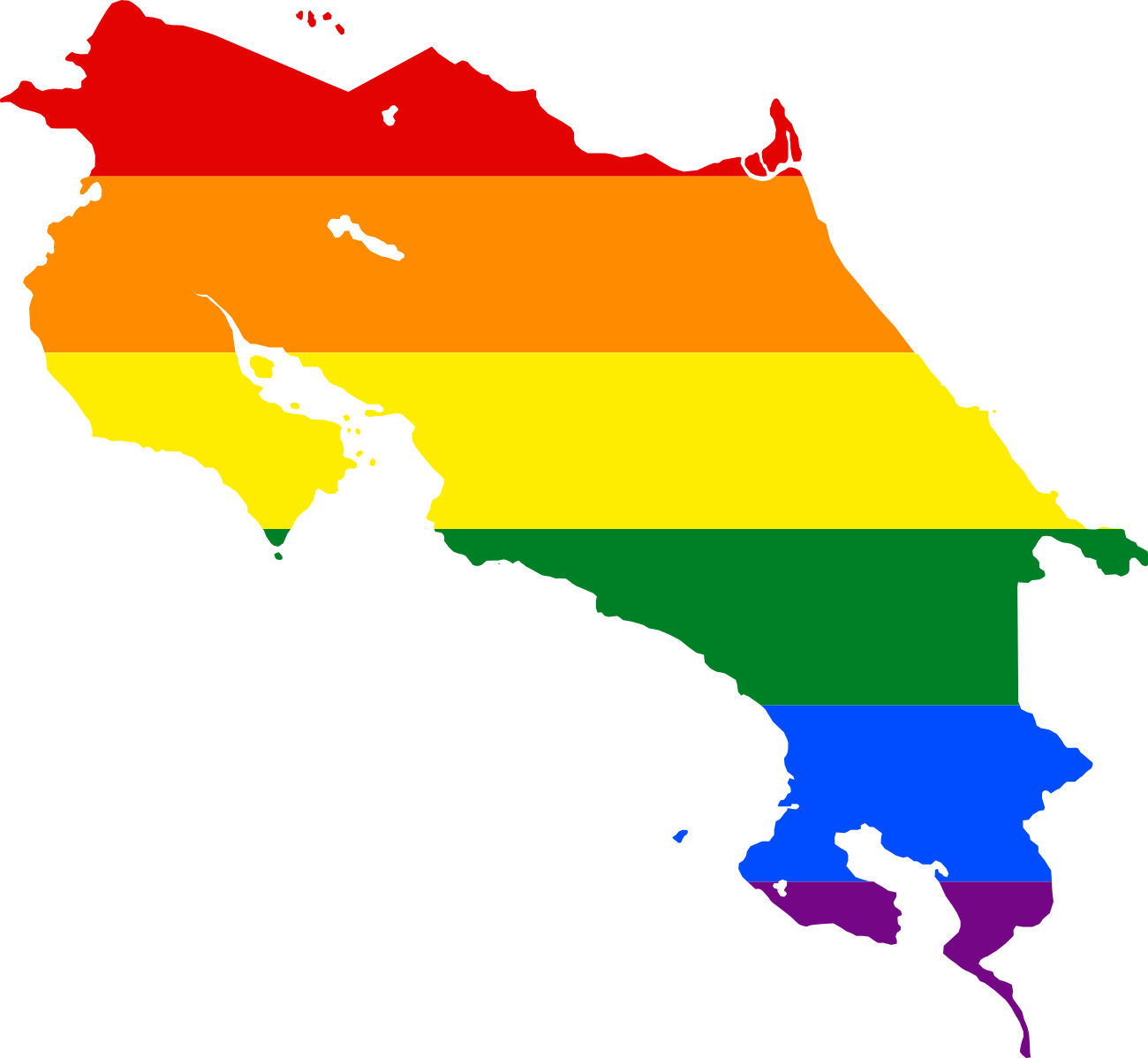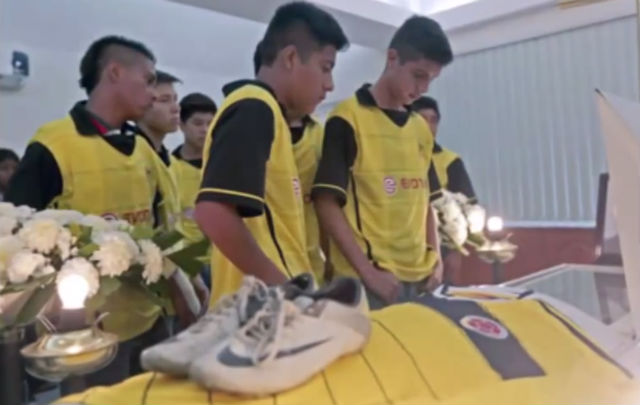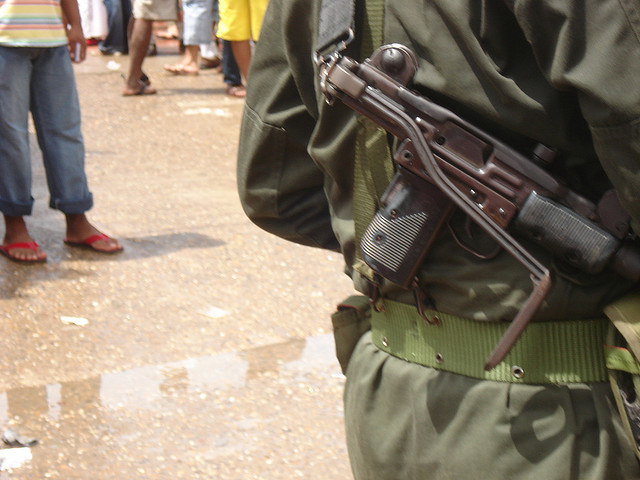
Ecuador, Latin America: Week in Review
Ecuador Declares State of Emergency; Rafael Correa Calls Protests “Coup d’État”
October 1, 2010 By Staff
Today in Latin America
Top Story — The Ecuadoran government declared a state of emergency Thursday after protests by police officers and members of the military turned ugly and sent President Rafael Correa to the hospital.
Correa was attacked with tear gas as well as shoved, insulted and pelted with water as he attempted to speak to the crowd protesting austerity cuts. He called the protests an attempt at a coup d’état and was taken to Quito’s National Police Hospital.
“I’ll leave here as president or they’ll take me out as a corpse,” Correa told a local television station, according to Reuters.
One person was killed and there are reports of between six and 50 people injured in the clashes between the protesting police and supporters of Correa.
“We’ve treated 50 people in Quito for medical emergencies due to asphyxiation due to tear gas and impacts from pellets and teargas cannisters,” said Jorge Arteaga of the Red Cross, according to The Wall Street Journal.
With the state of emergency in effect civil liberties have been suspended and soldiers are authorized to carry out searches without a warrant. General Ernesto Gonzalez, the Ecuadoran army chief, demanded that the protesting officers end the uprising and promised that those involved “would have their rights respected” if they turned themselves in.
Correa said that there was a plan in place to end the standoff, but well into the night Teleamazonas streamed live footage of what appeared to be firefights between the protesting police officers and Ecuadoran security forces.
World leaders sent messages to Correa throughout the day Thursday to express their support and Catherine Ashton, the European Union’s foreign policy chief, called for calm and expressed support for the Ecuadoran government.
Both Peru and Colombia said they would close off their borders with Ecuador due to the unrest.
Just Published at the Latin America News Dispatch
- Congress postponed a vote on a bill that would ease restrictions on Americans traveling to Cuba. Raisa Camargo reports from Washington.
- With Venezuela having gone through historic parliamentary elections on Sunday, Juan Fajardo takes a look at how both supporters and opponents of Hugo Chávez have used marches and street protests to vie for control of public space in this photo essay.
- A new government program aims to make Chile a heaven for start-ups. David Mauro has the story.
- With Brazil’s election season in full swing, Hugo Passarello Luna takes a look Luiz Inácio “Lula” da Silva’s presidency.
- Chile’s President, Sebastián Piñera, laid out an ambitious program to bring his country into the ranks of the developed world in a speech on Wednesday.
- Journalism in Mexico has become a dangerous job and has many people- from President Calderón to bloggers- wondering how to best to protect reporters.
- The Senate voted to stall the DREAM Act on Tuesday, which had been inserted as an amendment to the defense appropriations bill. Latin America News Dispatch contributor Raisa Camargo reports from Washington.
Headlines from the Western Hemisphere
North America
- New York Mayor Michael Bloomberg and media baron Rupert Murdoch Thursday urged members of Congress to reach across party lines to fix “our broken system of immigration.”
- A federal program to assist law enforcement in spotting immigrants with criminal records is now operational in every Texas county, the U.S. Immigration and Customs Enforcement has announced.
- Two men were arrested for killing a small-town Mexican mayor over a land dispute in a $6,000 contract killing, prosecutors said Thursday. Nuevo León state Attorney General Alejandro Garza y Garza ruled out the involvement of drug gangs that have been blamed for the assassination of many other mayors in Mexico.
- A rain-soaked hillside crumbled and crushed an elderly couple in their home Thursday, raising the death toll from a series of landslides across southern Mexico this week to at least 23. The search continued for at least nine missing people.
Caribbean
- The new U.S. Coast Guard commander for the southeastern United States said Thursday that his agency is looking “very seriously” at Cuba’s plans to drill for oil and reviewing contingency plans in the event of a spill that could reach the Florida coast.
- Fidel Castro’s daughter Alina Fernández spoke to University of Florida students in Gainesville Wednesday as part of Hispanic Heritage Month.
- Puerto Rico’s police have charged a couple with repeatedly raping their six children and forcing them to participate in drug-fueled orgies.
Central America
- Guatemala on Wednesday began exhuming the remains of those murdered by the army during the internal armed conflict of 1960 to 1996.
- Honduras’ maquila industry, which is mainly made up of textile and apparel manufacturers, could grow 18% this year, helped by a slew of recent investments in the northern industrial area and recovering US exports, according to leading industry executives.
- Unnerved by the explosion of drug trafficking in the region, Central American governments are petitioning the Obama administration for more funds to strengthen their police and social programs, saying current U.S. aid is insufficient.
- A law enforcement official says a Nicaraguan diplomat found dead in his New York City apartment last week had also ingested drain cleaner.
- The lack of maintenance and investment in road infrastructure has crippled Costa Rica with two days of constant rain.
Andes
- Colombian President Juan Manuel Santos said on Thursday Bogotá was closing the border with neighboring Ecuador where unrest erupted over austerity measures.
- The fossil of a giant red penguin, nearly twice as tall as the largest living species, has been discovered in Peru, U.S. paleontologists say.
- A Venezuelan official says a riot involving rival gangs inside a prison has killed 16 inmates and injured 35.
Southern Cone
- A poll released Thursday shows that Brazilian presidential candidate and former guerrilla Dilma Rousseff could avoid a run-off in Sunday’s elections and win the presidency outright.
- Argentina granted asylum to former Chilean leftist guerrilla Galvarino Apablaza Guerra, who is charged in Chile with assassinating a senator and kidnapping a businessman.
- Argentine soccer star Lionel Messi received the Golden Boot Thursday for being the top scorer last season in Europe’s domestic leagues.
- Uruguayan President José Mujica authorized the country’s entrance into the Network of Aquaculture of the Americas (RAA).
Image: Presidencia de la República del Ecuador @ Flickr.





